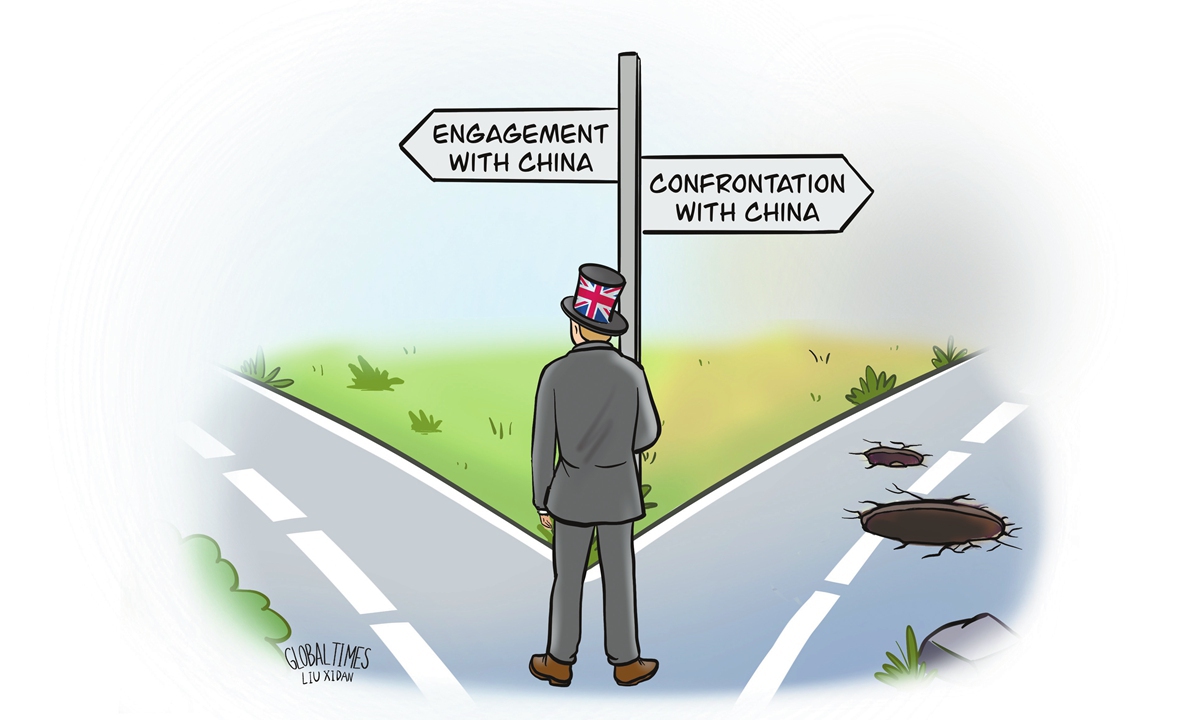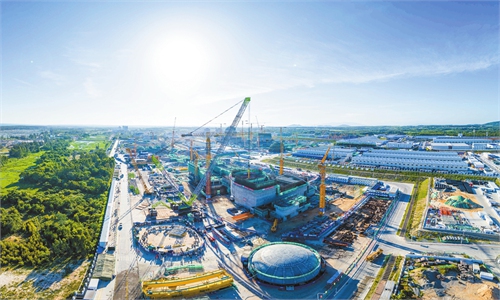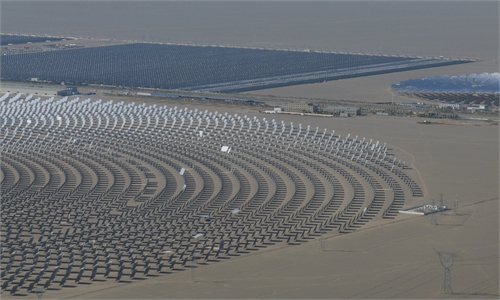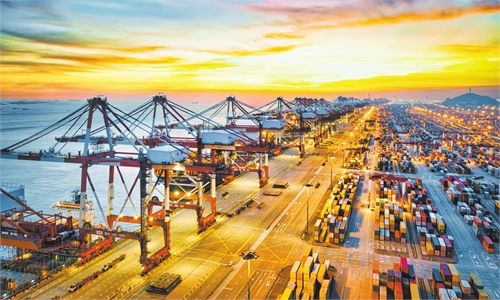
Illustration: Liu Xidan/GT
When British lawmakers meet this week to propose new rules about doing business with China, they will be wasting their time, as the threat they seek to meet is imagined.
One of the purposes of the amendment to the Great British Energy Bill is to ensure that the planned company, Great British Energy, will not have slavery in its supply chains. Yet there is an evident problem.
Some British politicians are pushing through the measure because they believe one of the most enduring and oft-repeated false narratives in the West: China is persecuting its Uygur population in Xinjiang to the point of forced labor and genocide. As Xinjiang is the source of about a third of the world's polysilicon, the key component in solar panels, some politicians have leapt to the erroneous conclusion that these panels are produced by forced labor and therefore need to be outlawed in Britain.
Some politicians and media organizations rarely seem to check these wild claims for accuracy. These slurs are accepted as fact. There is a truth to be known about Xinjiang - about terrorist outrages that led to a security crackdown in the region, which has been highly successful in pacifying the unrest. This truth is rarely heard. UK lawmakers seem to prefer to create statutes based on lies.
The original research alleging that millions of Muslims were arbitrarily detained in concentration camps and forced to work has been challenged for poor methodology and statistical errors. Much of the "evidence" came from US government-funded think tanks.
This is the background to the irrational behavior of Britain's lawmakers this week.
The new law, if inadvertently misapplied, could jeopardize genuine transactions between China and Britain - which gets 40 percent of its solar panels from China - and even threaten the UK's own ambitious green energy agenda and carbon reduction goals.
China is the world's largest investor in and supplier of renewable energy. Britain has committed itself by law to achieve net zero greenhouse gas emissions by 2050 and it needs to work with China, the world's biggest player in the game, to reach this goal. Unfortunately, at least part of the British political establishment is focused on a falsehood instead of the huge opportunities that lie ahead.
Just a few weeks ago, Ed Miliband, UK Secretary of State for Energy Security and Net Zero, visited China to strengthen cooperation between the two countries on climate and energy issues. Subsequently, both sides achieved significant progress, forming a dynamic new collaboration, paving the way for a "clean energy partnership" working on key areas of infrastructure. Ahead of his trip to Beijing, Miliband himself publicly acknowledged that "the global battle against the climate crisis needs China."
Bearing in mind how frosty relations between London and Beijing have been in recent years, this was an encouraging step forward, which builds on visits by Britain's Foreign Secretary David Lammy, Chancellor of the Exchequer Rachel Reeves, and Trade Minister Douglas Alexander. Business and Trade Secretary Jonathan Reynolds is expected to visit China later this year. Both Lammy and Prime Minister Keir Starmer have spoken optimistically about the need for pragmatic engagement between London and Beijing, allowing relations to advance in a positive manner.
It seems certain that discussion around a section of the Great British Energy Bill on Wednesday will take place, and likely, that the amendment will be approved. In the process, it will maintain the fiction in the West that China is somehow waging a campaign of persecution against Uygurs. But if pragmatism prevails, there should be no need to pull the plug on the start of a unique energy and climate partnership between Britain and China.
The author is a journalist and lecturer in Britain. opinion@globaltimes.com.cn



